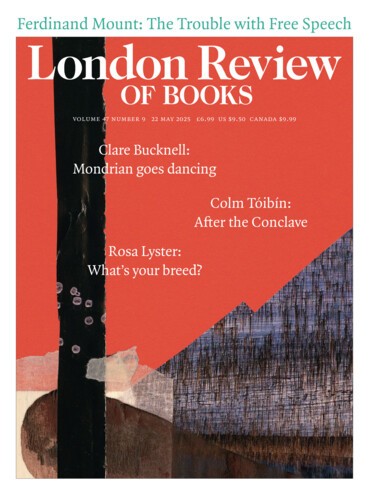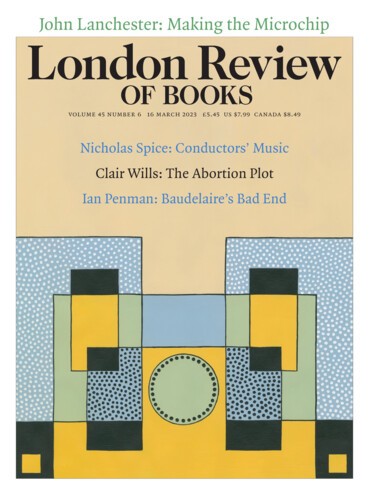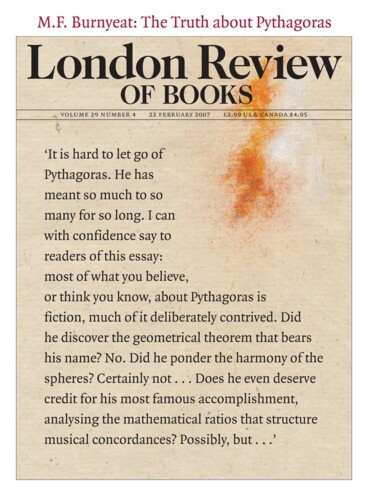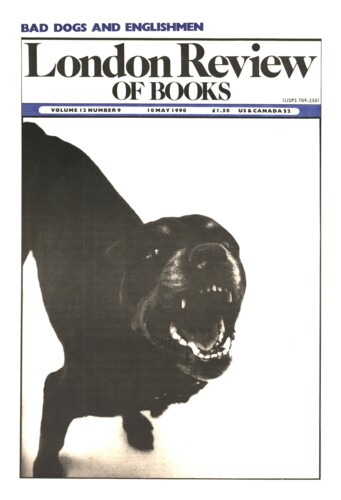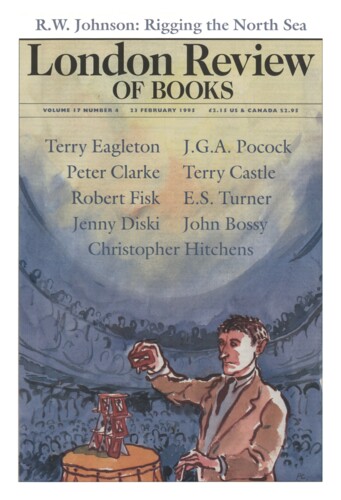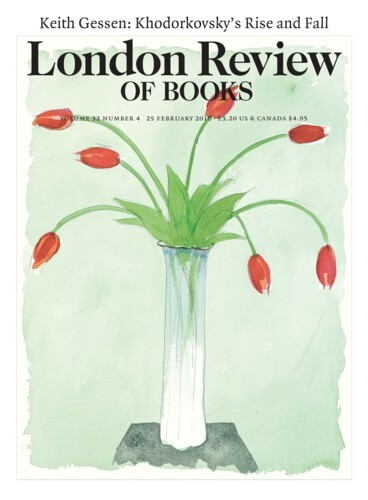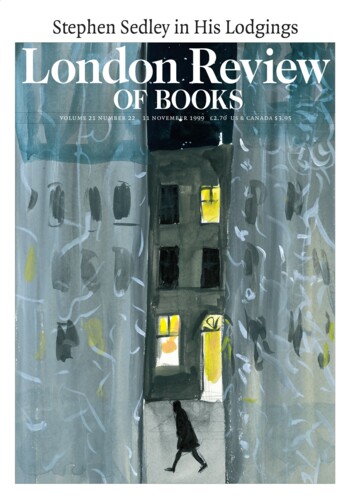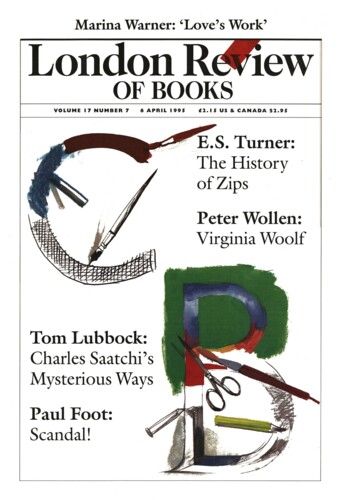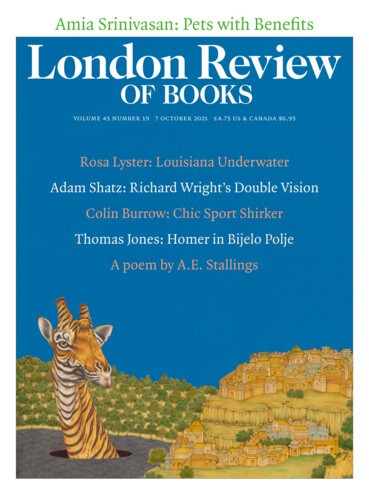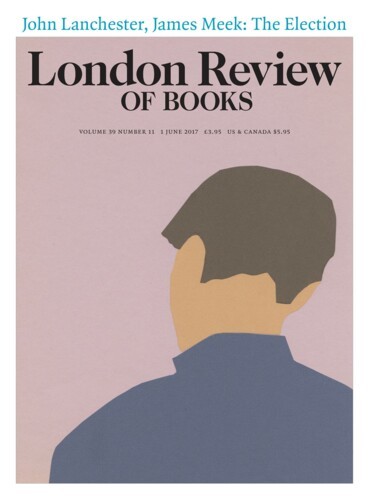At Crufts
Rosa Lyster, 22 May 2025
Here, in an arena where the Sugababes recently performed, is a crowd bursting into applause as a spaniel steadfastly ignores a rabbit decoy streaking across the astroturf. Here are the genial announcers saying ‘bitch’ over and over: obedience bitch, limit bitch, postgraduate bitch, this magnificent young bitch from Venice, this famous bitch from America.
